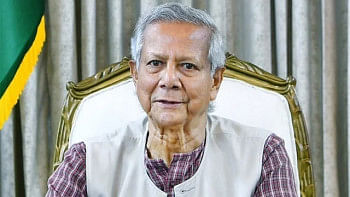Trump's Embassy Move to Jerusalem: Israeli air strikes kill two in Gaza
Israeli air strikes in Gaza killed two Palestinian gunmen yesterday after rockets were fired from the enclave, in violence that erupted over President Donald Trump's recognition of Jerusalem as Israel's capital.
In Cairo, Palestinian Foreign Minister Riyad Al-Maliki said the Palestinians will seek a UN Security Council resolution over Trump's decision on Jerusalem.
Turkey's President Tayyip Erdogan and French President Emmanuel Macron will work together to try to persuade the United States to reconsider the move, a Turkish presidential source said.
Trump's reversal of decades of US policy has infuriated the Arab world and upset Western allies, who say it is a blow to peace efforts and risks sparking more violence in the region.
Gaza militants launched at least three rockets towards Israeli towns from the Gaza Strip - which is controlled by the Islamist group Hamas - after dark on Friday. The day had been declared a "day of rage" by Palestinian factions protesting against Trump's announcement on Wednesday.
"IAF (Israeli Air Force) aircraft targeted four facilities belonging to the Hamas terror organization in the Gaza Strip: two weapons manufacturing sites, a weapons warehouse, a military compound," the Israeli military said in a statement.
A Hamas source confirmed the two men killed in the pre-dawn air strikes belonged to the group, which has urged Palestinians to keep up the confrontation with Israeli forces.
Palestinian protests yesterday were less intense than on the previous two days.
About 60 Palestinian youths threw stones at Israeli soldiers across the Gaza-Israel border and the health ministry said at least 10 were wounded by Israeli fire.
In the West Bank, Palestinians set fire to tyres and threw stones and fire-bombs at Israeli troops, who used tear gas. The Israeli military said one protester was arrested.
In East Jerusalem about 60 people demonstrated near the walled Old City, where paramilitary border police and officers on horseback tried to disperse the crowd with tear gas. Six demonstrators were arrested and two officers were injured by stones, police spokesman Micky Rosenfeld said.
On Friday, thousands of Palestinians took to the streets in protest and two Palestinians were killed in clashes with Israeli troops on the Gaza border. Scores more were wounded there and in the West Bank. Across the Arab and Muslim worlds, thousands more protesters had gathered to express solidarity.
Palestinian President Mahmoud Abbas said on Friday the United States could no longer broker peace talks. Trump's adviser and son-in-law, Jared Kushner, is leading efforts to restart negotiations, though his bid has shown little progress.
Abbas's diplomatic affairs adviser said the leader would not be meeting U.S. Vice President Mike Pence, who was due to visit the region later this month.
"America has crossed all red lines with its latest decisions over Jerusalem," the adviser, Majdi al-Khaldi, said.
A possible meeting with Pence has also been turned down by Egypt's Coptic Church, MENA state news agency reported yesterday.
The Turkish presidential source said Erdogan and Macron agreed during a phone call that Trump's move was worrying for the region and that Turkey and France would make a joint effort to try to reverse the U.S. decision.
Erdogan also spoke to the presidents of Kazakhstan, Lebanon and Azerbaijan yesterday, the source said. On Wednesday, he called an urgent meeting of the Organization of Islamic Cooperation in Turkey next week.
The status of Jerusalem has been one of the biggest obstacles to a peace agreement between Israel and the Palestinians for generations.
Israel considers all of Jerusalem to be its capital. Palestinians want the eastern part of the city as the capital of a future independent state of their own.
Most countries consider East Jerusalem, which Israel annexed after capturing it in the 1967 Middle East War, to be occupied territory. It includes the Old City, home to sites considered holy to Muslims, Jews and Christians alike.
For decades, Washington, like most of the rest of the international community, held back from recognising Jerusalem as Israel's capital, saying its status should be determined as part of the Palestinian-Israeli peace process.
Trump also said on Wednesday he was starting the process of moving the United States embassy from Tel Aviv to Jerusalem.
The Trump administration argues that the peace process has become moribund, and outdated policies need to be jettisoned for the sides in the conflict to make progress.
A senior United Arab Emirates (UAE) official yesterday said that Trump's move was a boon to radicals.
"These issues are a gift to radicalism. Radicals and extremists will use that to fan the language of hate," Minister of State for Foreign Affairs Anwar Gargash said at the Manama Dialogue security conference in Bahrain.

 For all latest news, follow The Daily Star's Google News channel.
For all latest news, follow The Daily Star's Google News channel. 



Comments